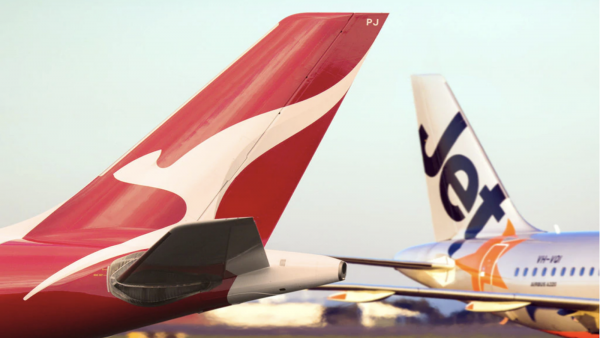SYDNEY, 18 January 2022: Qantas and Jetstar are adjusting flying levels to better match travel demand in light of the sudden growth in Covid-19 cases.
The Qantas Group now expects domestic capacity for the third quarter of FY22 (January to March) to be at around 70% of pre-Covid levels, down from the 102% that had been planned.

The schedule changes are focused on reducing flights and aircraft size. The group’s total international capacity for the same period will fall from 30% to around 20% of pre-Covid levels. This reduction is driven by increased travel restrictions in countries like Japan, Thailand and Indonesia and is mostly impacting Jetstar’s leisure routes. Other markets – such as London, Los Angeles, Vancouver, Johannesburg and India – continue to perform well.
Customers will be contacted directly from late January if their booking is impacted by cancellations and offered alternative flights that, in most cases, are likely to be a difference of a few hours if travelling domestically.
An assessment on the financial impact of these changes will be given at the group’s half-year results in late February, by which time a clearer picture will have emerged on swing factors such as actual demand levels; potential loosening or tightening of travel restrictions in countries overseas; and consumer response to the reopening of Western Australia next month. No material adjustments have been made to capacity expectations for Q4 FY22 (April to June).
Qantas Group CEO Alan Joyce said: “The sudden uptick in Covid-19 cases is having a noticeable impact on consumer behaviour across various sectors, including travel, but we know it’s temporary.
“Thankfully, Australia has one of the world’s highest vaccination rates, and the Omicron variant is milder than its predecessors. So, as challenging as this current phase is, we’re optimistic that it is likely to fast track a return to normal.
“People are already looking beyond what’s happening now with early bookings for the Easter holidays in April looking promising for both domestic and international.
“We have the flexibility to add capacity back if demand improves earlier than expected, but 70% still represents a lot of domestic flying, and it’s a quantum improvement on the levels we faced only a few months ago.
“Our focus on positive cash flying remains, notwithstanding some of the costs that we’ll have to absorb from this sudden drop in demand.
Customers will be contacted directly by Qantas or their travel agent from late January if their booking has been impacted by flight cancellations.






